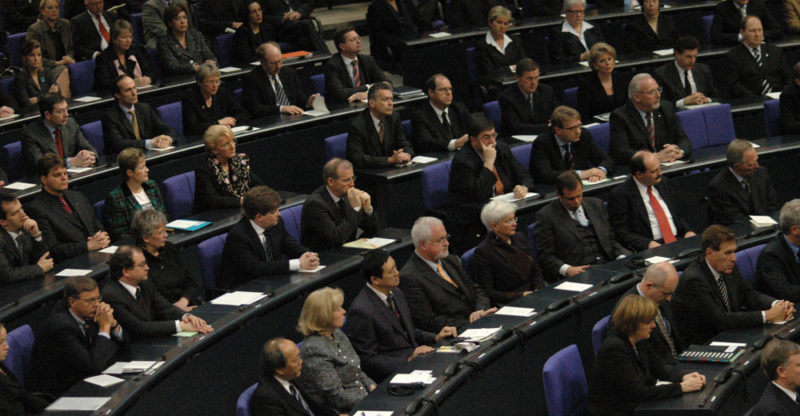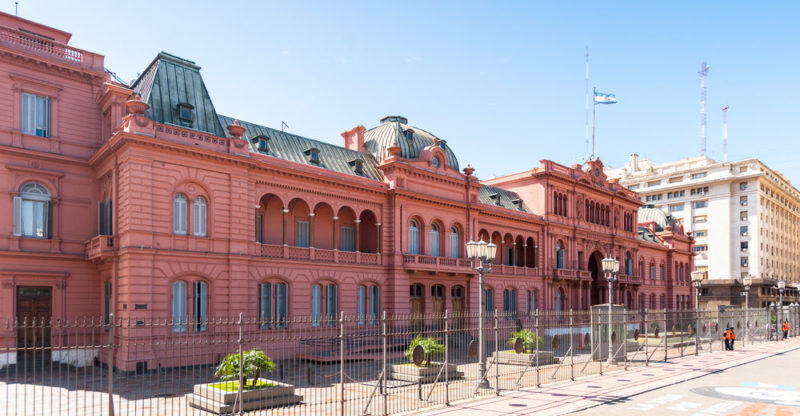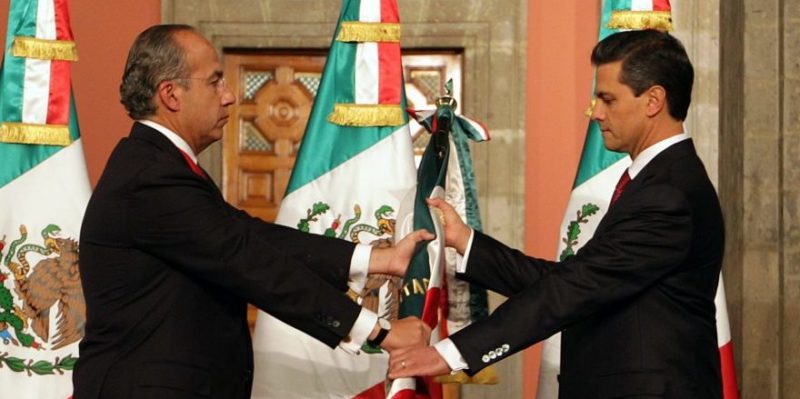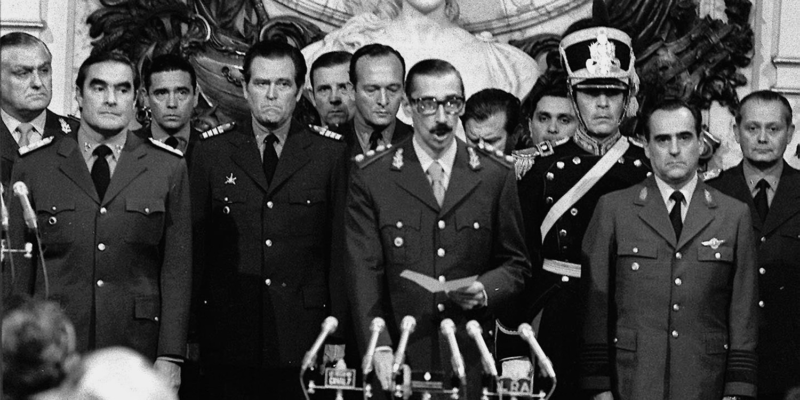We explain what a government is, the organs that compose it and its organs. Also, what are its characteristics and importance.
What is a government?
Government is understood as the political authority that leads a State . It is in charge of the control and administration of its institutions as established in the legal framework of law (the Magna Carta or Constitution ). In other words, it is the political leadership of a nation, province or autonomous institution (in this case we speak of co-governments).Commonly, when we speak of the government we refer to the group of individuals endowed with public positions of popular election. The power of the State is delegated to them , with the commitment to make good use of it.
In many cases when we speak of the government we refer to the executive power : heads of government (presidents or prime ministers) , vice presidents and their ministers or chiefs of cabinet. However, in a broader sense, the government is also made up of the legislative and judicial branches .
Government definitions
According to León Duguit, a French jurist specializing in public law, the government is "the set of State organs made up of the public authorities that exercise State power."Likewise, it is defined by the Argentine jurist Carlos Sánchez Viamonte: “the organization through which the will of the State is formulated, expressed and carried out”.
For his part, the Mexican José R. Castelazo in 2007 defined it as “the organization that represents the State for the fulfillment of its objectives and goals ”.
Forms of government
 Human concern for the exercise of political power has a long history. Although currently the forms of government are classified differently , the terms coined then are still used for their explanatory power.
Human concern for the exercise of political power has a long history. Although currently the forms of government are classified differently , the terms coined then are still used for their explanatory power.Already in the times of Ancient Greece the philosophers had proposed to classify the forms of government . Among them, Aristotle established two broad categories: pure and impure forms of government, and three specific ways of exercising power:
- pure shapes. Those forms of government that take into account the interest of the governed community . They can be of three types:
- Monarchies . In which a single individual rules, crowned as king.
- aristocracies . In those governed by a few, who exercise political power for the common good.
- Democracies . In which many govern and the criteria of the masses are taken into account.
- impure forms. Those forms of government that do not take into account the common good and serve only the interests of those who exercise them. They can be of three types:
- Tyrannies . In which a single individual governs by force or intimidation, without a hint of legality or recognition.
- Oligarchies . In which a privileged minority governs, defending only its interests and not those of the community.
- demagoguery . In which many govern, but only a few benefit, because they tell the masses what they want to hear and deceive them.
Later, in the 18th century, the French essayist Montesquieu proposed three possible forms of government:
- Republic . In it, political power is held by the voice of the majority, through representation mechanisms (parliaments or legislative assemblies), and is exercised with the consent of the community. Most modern nations are republican.
- Monarchy . A person is chosen to rule absolutely, within the framework of certain inheritance laws and a certain ordering of what the King is allowed and what is not.
- Despotism. Power is exercised by a single person but in a tyrannical manner, that is, by force, without respect for any legal system.
Current Government Ranking
Today notions such as republic or monarchy are still used to explain certain political functioning. However, today the main classification is based on another criterion: the extent to which the will of the people , human rights and constitutional laws are respected.
Although there may be cases that have aspects of one and the other, in general governments are classified as:
- Democratic. Those in which citizens can freely exercise their political militancy and can organize themselves to elect their leaders based on popular preference, respecting the full right of others to dissent or prefer other tendencies.
- Undemocratic. Those in which political power is exercised without any respect for the constitutional order or clear rules of the game , without taking into account the will of the people and generally persecuting, punishing or prohibiting any type of dissidence, under penalty of imprisonment, death, disappearance or tortures.
Organs that make up the government

Every government exercises its authority through bodies or institutions, which make up a political and organizational mechanism with different functions and hierarchies. Some of the most common governing bodies today are:
- Head of government. Administered by a president, prime minister or executive equivalent, it is a position elected by direct or indirect vote by the governed, who is at the helm of the ship, so to speak.
- Vice presidency. A second instance that makes up in some States a secondary executive power, capable of making some decisions autonomously but above all essential in the absence of the head of government.
- Ministries. Of variable number and dedication, these are the delegations that carry out the directives of the executive power in specific areas of the life of the nation: Health, Education , Transportation, Defense, Science and Technology , etc.
- Governors or provincial governments. Equivalent in responsibility to the president, but in the different political partitions of the national territory, whether they are States, Provinces or Cantons.
Why is government important?
The political decisions of a nation have a direct impact on the quality of life of citizens , the functioning of the economy and the future of the nation. For these reasons the government is always the object of suspicion, investigation and debate . A bad government is as capable of ruining a country as a good government of saving it.
Change of government

The period of government is the determined time in which each government is valid . It can be extended from 4 to 6 years in most Western democracies . At the end of it, a new government is usually chosen to succeed it.
In non-democratic regimes, on the other hand, the periods can be much longer or indefinite, as occurs in dictatorships . Many often end with the death of the senior autocrat , thus giving way to a new form of government.
Another way to change the government is the coup d'état . In them, a sector of the population rises up and causes the fall or collapse of the government by force, thus allowing the immediate emergence of another.
However, this type of force mechanisms, as well as the Revolutions , are usually frowned upon since they do not follow the political rules of the game. They can bring as a consequence unconsulted and undemocratic governments.
Government legitimacy
Governments may or may not be legitimate, depending on whether they operate within the framework of laws provided for in the Constitution or not . Illegitimate governments are those that do not operate according to the established rules. They may hold authority, but their power is illegitimate. In some cases, other State institutions oppose him and do not admit his leadership.
Governance
Governance to refer to the ability of a nation to be governed . More specifically, they are the conditions for a defined government to continue in power, or if its collapse and replacement by a new one is imminent.
Governance conditions vary depending on the point of view that studies them . However, in general, they depend on the continuity of institutions and adherence to the rules by the population.
Facto government

A de facto government is a government that no one has elected . It is erected in charge of the State by means of force, such as a coup , a Revolution or a conspiracy. These types of governments lack legitimacy of origin, since they do not represent the will of the people but rather that of a powerful minority, generally.
On the other hand, when a legitimate government refuses to hand over state power once its term has expired, in some cases it uses the mechanisms of the state itself to perpetuate itself in power. It then loses its legitimacy and becomes a de facto government, even if it initially came to power through elections .
What is a good government?
A good government is one that fulfills its commitment to the common welfare, that is, that it meets the following characteristics:
- It must be legitimate. That is, respect the rules of the political game.
- It must be transparent. The State must not be used for the personal enrichment of its officials and must be accountable for its expenses.
- It must be effective. In other words, it must make efficient and responsible use of State resources.
- It must be fair. In the sense of not favoring any political bias.
- It must be compromised. It must not let the needs of the people pass by indifferently.
Abubakr Conner brings a diverse skill set to our team, and covers everything from analysis to the culture of food and drink. He Believes: "Education is the most powerful weapon that exists to change the world." .
Leave a reply
Your email address will not be published. Required fields are marked *Recent post

Sport: What Is It, Types, Risks, Features, Characteristics and Examples

Dogs: Emergence, Features, Characteristics, Feeding and Breeds

Story: Definition, Elements, Structure, Features and Characteristics

